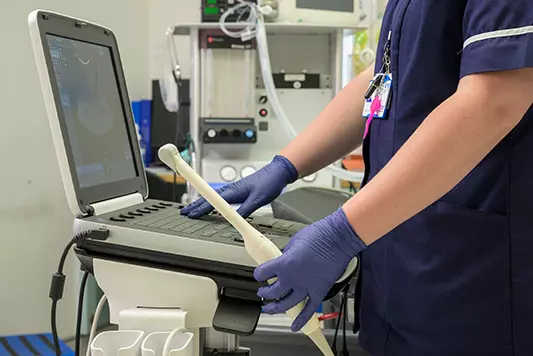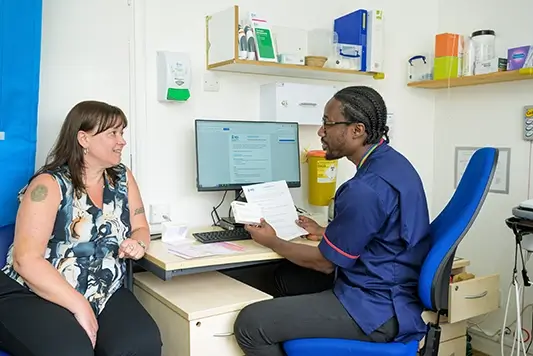How to choose between abortion treatments

Different types of abortion
There are two types of abortion: medical (or abortion with pills) and surgical.
Most people having an abortion can choose how it will be carried out. Your choice will depend on your individual circumstances and how you feel about the different options.
Types of abortion: medical and surgical
What is the difference between a medical and a surgical abortion?
We offer a range of abortion care services and support through our network of clinics. In this short video, Dr Yvonne Neubauer, MSI UK’s Associate Clinical Director, explains the difference between the two methods of abortion and the treatment involved.
You are not alone in making this decision. We are here to talk it through with you and to help you access the care and support you need.

How to choose your abortion treatment
Most people having an abortion can choose how it will be carried out. Your choice will depend on your individual circumstances, your gestation (how many weeks pregnant you are) and how you feel about the different options.
At MSI UK we offer the following treatments:
- Medical abortion (abortion with pills): up to 9 weeks and 6 days gestation
- Surgical abortion: available from 6 weeks gestation, up to 23 weeks and 6 days gestation
Which treatment is right for you? Making an informed choice between medical and surgical abortion
Your gestation (how many weeks pregnant you are) is not the only factor to take into consideration when choosing between a medical or a surgical abortion. In fact, while a medical abortion (abortion with pills) is the safest option up to 9 weeks and 6 days gestation for most people, a surgical abortion is available from 6 weeks gestation up to 23 weeks and 6 days gestation (the legal limit for an abortion in the UK).
Your gestation, past medical history, gynaecological history, any medication you are taking and personal choice and preferences, are all factors that can determine which treatment is best for you.
The National Institute for Health and Care Excellence (NICE) published two decision aid leaflets (Abortion before 14 weeks and Abortion from 14 weeks up to 24 weeks) that can help you decide which option is best for you. To help you in your decision, we have summarised the key things for you to consider in this table.
Available up to
Where will the abortion take place?
Will I see the pregnancy pass?
Is the treatment painful?
How much bleeding will I have?
What contraception options are available at the same time or shortly after the abortion?
Is a pregnancy test required post-treatment?
Medical
Surgical
9 weeks and 6 days of pregnancy
From 6 weeks of pregnancy to 23 weeks and 6 days of pregnancy
Whether you are accessing our telemedicine service (which means the pills can be posted to you without the need to visit a clinic for a scan) or you are visiting one of our clinics, you will take the abortion pills and pass the pregnancy at home.
It takes place in one of our clinics (or in a hospital). You can normally go home on the same day, but if you have a general anaesthetic you will normally need someone to accompany you.
It’s good to be aware that during a medical abortion, you will be awake and aware of the process. You may see the pregnancy as it passes, and it might be more visible after 9 weeks of pregnancy.
Not unless you choose to do so.
Most people will have significant cramping pain. If pain is severe, this is usually short-lived and is relieved when the pregnancy passes.
If you have local anaesthetic the procedure might feel uncomfortable. You’ll probably have some pain or cramping for a few days to a week after the abortion.
Everyone experiences heavy vaginal bleeding during a medical abortion. Occasionally, it can take up to 2 weeks to fully pass all the pregnancy tissue, and you may continue to bleed for up to 8 weeks.
It is normal to have some bleeding after your surgical abortion. This may be heavier than a normal period, with small clots. It can last for up to 2 weeks.
If you start any contraceptive method within 5 days of the abortion, it will be effective straight away. Read more about contraception options after an abortion at this link.
The contraceptive injection, contraceptive implant or contraceptive coils can be fitted during or on the same day as your surgical abortion treatment.
Yes, 3 weeks following your abortion you will be asked to take the pregnancy test included in the medical abortion pack we provided.
No, a pregnancy test is not required post-treatment.
Learn more about abortion
Visit the pages below to learn about UK abortion law, what to expect when accessing abortion care and find a tool to help you calculate your gestation (how many weeks pregnant you are).

Gestation calculator
A useful tool to calculate your gestation (how many weeks pregnant you are).

Abortion and your rights
Learn more about abortion law in the UK and your rights.

What to expect
Learn more about what to expect when accessing abortion care with MSI UK.








































